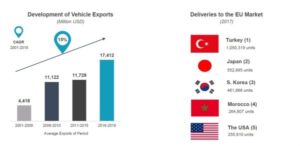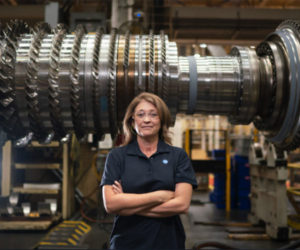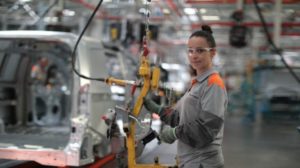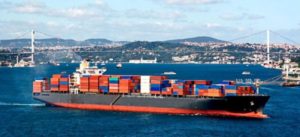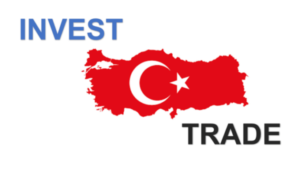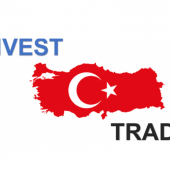The Automotive Industry in the Republic of Turkey, which dates back to the 1920s, is just about as old as the country itself. According to Trade Minister Nihat Ergünhas, the automobile industry is the engine of our economy. Several vehicle components meant for European and other markets have been produced in Turkey over the last 20 years. It is due to the favorable trade agreements and various distinct Turkish competitive advantages. The Turkey Automotive industry in 2023 will definitely grow due to this. Turkey’s automobile industry employs approximately half a million people and accounts for a major portion of the country’s industrial production.
Turkey produces more than half of its commercial vehicles and buses for Turkish automotive exports. This makes it one of Europe’s largest producers. To summarize, this European automobile manufacture has evolved into a cornerstone of the country’s modern economy, and it will continue to play a vital role in the country’s economic future.
Some Automotive industry Historical Facts:
Turks made their first venture into the automobile industry in 1929, when Vehbi Koç, the creator of Turkish mega-conglomerate Koç Holdings, became a Ford retailer. Under his Ford import and sale agreement, Koç assembled automobiles from kits of prefabricated parts. Turkey’s only automotive activity was until 1964 when Koç launched the Anadol’s brand. In terms of design, the Anadol were ahead of their time, although they borrowed heavily from Ford and other international automakers.
Over 100,000 Anadol automotive were built by Koç’s Otosan business, which was also under contract to make Ford and Ford Otosan in Turkey. The success of Otosan paved the path for other automakers to join the country. From the late 1960s until the 1980s, several global corporations developed their own plants in Turkey. Among them are Renault, Fiat, and Ford. Ford later purchased a stake in Koç’s Otosan company, and the two companies continue to collaborate today. Furthermore, Koç is a partner in a joint venture with Fiat. Thanks to a series of government policy revisions in the late 1980s and early 1990s, many of Turkey’s more than 1,300 automotive companies are foreign-owned.
Nowadays, you can find many cars like Togg, Tofaş, BMW, Mercedes, Volkswagen and more. These policies will be helpful to grow the Turkey Automotive industry in 2023.
Economic Liberalization’s Impact on the Automobile Industry:
Turkey has been pursuing an economic liberalization policy since the 1980s. It led to the privatization of various industries as well as the opening of Turkish businesses to foreign investors and traders. The prior government policy of Turkish automotive import substitution did not allow the auto industry to thrive competitively. Despite Turkey’s growing liberalization in the 1980s, car manufacturing in Turkey was still predominantly geared for local consumption due to high Turkish automotive export tariffs and trade barriers with Europe. When the EU and Turkey signed a Customs Union agreement in December 1995, this changed. Turkish automotive imports declined.
This agreement might be considered a watershed moment for the Turkish industry because it boosted the automobile industry by allowing the export market to develop. The changes made possible by this agreement had a profound impact on how the automobile industry could operate and compete; Turkey could now compete on a regional and worldwide basis. Later, we’ll look at the Customs Union and its significance in the industry’s history.
Turkey’s gross domestic product increased from $169.71 billion in 1995 to $794.23 billion in 2008. Overall, this is a huge step forward. The auto industry has risen to prominence as a result of an increase in foreign direct investment (FDI) spurred by economic liberalization.
Research and Development in the Automotive industry:
Increased capacity and product quality, as well as research and development for new models made in Turkey, can all be seen. Foreign direct investment (FDI) assisted them. According to some estimates, as early as 1999, the Turkish auto industry was funded by outside sources to the tune of 40% or more. Auto production like Ford Otosan production has increased considerably from over 320,000 units in 1995 to over 1.1 million units in 2008. As Turkish automotive exports soared, capacity utilization, a critical statistic that indicates how well a factory’s output is being utilized, improved considerably for Turkish automakers. The capacity utilization rate improved from 29% in 2002 to more than 90% in 2007. The development of Turkey as European automobile manufacture provided the necessary demand for the Turkey Automotive industry to expand via an export-oriented strategy. The business has also become closely linked to Turkey’s long-term economic success.
This achievement is evident today, as Turkey’s vehicle industry accounts for 14% of all exports, surpassing textiles and other iron and steel products. In 2008, vehicle exports amounted to more than $22 billion. Over 80% of the production of the Turkish Automotive industry is exported. The sector and its affiliates employ over 500,000 people. Despite its youth, the automobile sector currently has the capacity to produce about 1.5 million vehicles per year. In a developing country, the presence of an auto sector frequently leads to the development of other associated businesses.
Dr. Mustafa Yurdakul, a manufacturing systems specialist, said that the Turkey Automotive industry has close relationships with many other industries, and the number of transactions between the automobile industry and its partners has a substantial impact on the country’s economy.
Domestic Factors Contributing to the Automotive industry’s Growth:
To comprehend why Turkey became a car manufacturing powerhouse, it is necessary to first comprehend the Turkish home market. There were reasons that made Turkey interesting to automakers even before international commerce had such a large impact on the industry. These elements not only aided Turkey’s trade deregulation preparations but also influenced the country’s manufacturing capacity. The Automotive industry regulations turkey is also helpful for it.
Many Turks are proud of their country’s educated, competent, and affordable worker force. Furthermore, Turkey’s large population is relatively youthful when compared to other EU countries, offering a good base on which to develop employment. For decades, durable items, such as vehicles, have been assembled in Turkey, and the country’s educational system produces a workforce with a diverse set of technological skills and professional qualifications.
Turkey also has the benefit of being at a highly advantageous geographical location. It is well-positioned to serve markets in Europe, Asia, the Middle East, and Africa. A number of developed and emerging nations use it as a crossroads. Because of its unique location, it is an attractive location for firms to establish operations that can offer a wide range of markets. The majority of the vehicle industry is concentrated around Istanbul’s gateway city, along the busy Bosporus shipping lanes. Because of its proximity to a vast international transportation network and a large workforce, this location is well-suited for export-based auto manufacturing.
Plans for the Automotive Industry in the Long Run:
Turkey’s long-established aftermarket parts industry has benefited the country’s automobile like the Turkish domestic car components industry significantly. It has progressed in lockstep with the automobile industry. These companies build their own brands of vehicle replacement and add-on parts because they do not manufacture full cars and sell them straight to consumers. Exports of vehicle parts totaled $7 billion in 2008.
Turkey has surpassed Germany as the EU’s leading bus manufacturer. More Turks will be looking for personal vehicles as Turkey’s economy improves and its GDP rises. Turkey has become a big name as European automobile manufacture.
Due to the city’s massive size and mountainous environment, motorcycles and bikes are scarce. Automobiles like Turkish domestic car is regarded as the greatest alternative. Turkey’s rapid growth in the auto industry, as well as its favorable demographics, appeal to large auto companies and urge them to manufacture in the country.
With a large proportion of its population under the age of 40, Turkey provides a potential customer base as well as a platform for domestic growth. In 2005, it was estimated that just 92 autos per 1000 people existed. A domestic car like Turkish national car ownership remains low, despite the industry’s expansion during those years; clearly, there is room for improvement. It becomes possible due to the favorable Automotive industry regulations turkey.
In connection with its events, Messe Frankfurt, a German trade show organizer, provides research on local markets. According to its automotive market assessment for the Automechanika Istanbul show, foreign investors could expect significant potential in the Turkish Automotive industry. When these favorable market conditions are combined with expanding population and purchasing power, opportunities at all levels of operation and production become extremely appealing.
Some Facts of Turkey’s Auto Industry:
Some facts about the Automotive sector in Turkey are presented below.
- With a 75% average export rate, it is the world’s 14th largest automaker.
- In the last 30 years, Turkey has been a significant part of the global value chain of foreign OEMs (Original Equipment Manufacturers).
- The OEMs are involved in more than just production. They also benefit from Turkey’s engineering expertise and Turkey’s car price.
- OEMs invested approximately $13 billion between 2002 and 2016 to improve their R&D and manufacturing capabilities.
- With almost 1 million vehicles sold by the end of 2016, Turkey has set a new sales record.
- In 2016, the markets surrounding Turkey, ranging from Western Europe to Central Asia, sold nearly 24 million vehicles.
- With an average export rate of 75%, Turkey is the region’s largest export base for global OEMs outside of the EU.
- The high localization rates of the cars built in the country are largely due to the activity of 400+ Tier 1 supplier who deals directly with OEMs. BMC is a Turkey car company name among others.
- Turkey serves as a production base for more than 250 global suppliers. Twenty-eight of them are in the top 50 global suppliers.
- In 2016, there were ten automotive suppliers with revenue of more than $200 million in the Turkey Automotive industry.
- While many domestic factors have contributed to the success of the Turkish automobile industry, outside pressures have been important in the industry’s phenomenal growth. These same factors will continue to propel the sector forward in the future.
The Turkey Automotive industry 2020:
Turkey Automotive industry 2020 showed that Automotive manufacturing factories in Turkey and exports are rather stable. In 2019, the automobile industry faced challenges. In 2017, one million automobiles were sold in the Turkish domestic car market; this number fell by 35% in 2018 and 23% in 2019, to 492,000 automobiles. The Turkish automotive imports and exports declined by 9% and 5%, respectively, in comparison to the previous year. It shows stability in the Turkey Automotive industry 2020.
Are cars cheap in Turkey?
The prices of cars like Togg Turkish car price vary according to your demands. So, the answer of Are cars cheap in Turkey? is rather tricky. As a whole, the cars are expensive. Yet, if you like to buy nation-based cars, they are not expensive. Are cars cheap in Turkey? The answer is based on your requirements.
Who dominates the Automotive industry?
There are plenty of car manufacturers and suppliers in Turkey. Who dominates the Automotive industry? The answer to this question will show you that there are some competitors who claim to dominate the market. So, how do you that Who dominates the Automotive industry? Ford Otomotiv Sanayi and Toyota Otomotiv Sanayi Türkiye are the two big names. TEMCA is a Turkey car company name the production of which is huge.
External Factors to Grow The Automobile Industry:
There used to be a Customs Union with the EU. The 1995 Customs Union Agreement had a big impact on Turkey’s economy and industries. The agreement was included in the Ankara Treaty, which was seen as the first step toward possible EU membership. Its purpose was to persuade Turkey to match its policies with those of the EU. The abolition of many taxes, tariffs, and quotas was required to join the Customs Union, with the purpose of opening the way for full EU membership. These affect the Turkey car price.
Turkey’s aspiration to join the European Union has substantially improved the country’s financial and legal standards. Although the Customs Union pact was signed in December 1995 and started into effect in January 1996, the full benefits were not realized until 1999. It took several years to accomplish the necessary legislative framework and tax law adjustments. It affects the Togg Turkish car price.
Both in terms of trade creation and trade diversion, Turkey has profited from the fully constituted Customs Union. As a result of the country’s new status as a low-cost competitor, trade improves when it enters a customs agreement.
Trading diversion happens when a country deals more with its union partners because of its union commitment, even though it is not the most financially efficient trade option.
Both effects were visible in the Turkish economy in the years after the EU agreement’s passage. In 2005, Ercan Tezer, the General Secretary of the Turkish Automotive Manufacturers Association, summed up the impact of the Customs Union agreement by stating that the major goal was to gain access to foreign markets. Anyone intending to manufacture for European markets found Turkey to be a very appealing alternative. It achieved a big name as European automobile manufacture.
The Situation Right Now: The Automobile Crisis Around the World:
The Turkish financial sector and domestic economy are still doing well. However, the car industry’s export markets, which have become increasingly important, have suffered.
In a country where the automobile industry is so linked with the rest of the economy, the consequences are severe. Despite a 17% reduction in domestic sales in 2008, total production climbed by 4%, while exports increased by 11%, thanks to a strong first half.
In December 2008, output, sales, and exports were all down 50% or more year over year, portending a dismal 2009. Turkey’s 2009 sales were poor as the recession, and car sector downturn took hold. Annual output and exports both fell by more than a third.
Despite its current challenges, Turkey’s auto industry has a good chance of returning. Turkey should be able to stabilize and recover as a result of improved internal market prospects, increased export market prospects, and eventual recovery in Europe. As of October 2009, many markets were already exhibiting indications of recovery.
Sales in the Automotive sector in Turkey are expected to nearly fully recover to 2008 levels in 2010, with complete recovery by 2013.
Future of Automotive industry in Turkey:
Turkey is well located to service the Middle East. The Automotive market reports 2021 shows that Turkey is still a mostly untapped and profitable market. In this region, new-car competitors are also striving for market share. Competition arises on a variety of fronts within the greater region of Africa and the Middle East. Turkey’s neighbor Iran, for example, is a rising automaker, albeit one focused solely on the home market. Despite a variety of political barriers, Iran is aiming to expand throughout the Middle East and sees Turkey as a potential export market as well as a danger.
Egypt, the United Arab Emirates, and South Africa are all vying for a piece of the global automotive pie. Business Monitor International also publishes quarterly reports on Turkey’s auto industry.
These Turkish Automotive industry studies compare the “business environment” of the automobile industry in African and Middle Eastern countries. Turkey emerges as the clear leader in these regions when sales, growth, trade, and location are considered.
Automotive market reports 2021 explained that Turkey’s experience in the car industry also helps it stand out among emerging regional competitors.
Also, the Automotive market reports 2021 display that among other benefits that have resulted from the Customs Union, the industry’s superior investments have set it apart from other countries in the region.
Obtaining internationally recognized quality certifications, such as those from the International Organization for Standardization, has become an “institutional norm.”
Despite the increased global competition, Turkey remains a viable alternative for producers looking to serve both a large domestic and international market. The popular cars of Turkey are Togg, Tofaş, BMW, Mercedes, Volkswagen, and more. The Turkey Automotive industry in 2023 will show remarkable growth.
Conclusion:
What factors influenced the Turkish automobile industry’s growth? And how does it compare to other countries? The answer illustrates Turkey’s rapid growth and how current economic events will affect the car industry as well as the country’s future. Also, the Automotive industry regulations turkey will show the outcomes.
Turkey’s automobile industry’s viability is essential to the country’s future progress. In developing countries, automotive industries are crucial, and they have played a significant role in Turkey’s industrialization. The Automotive manufacturing factories in Turkey must complete the transformation from a manufacturing powerhouse to the regional center of excellence and development that it has started. As important as increased international investment and exports are, Turkey must not forget its local car-like Turkish national car sales opportunities, which are now underdeveloped and undervalued.
Because of the proper balance of developing aspects, the Turkish Automotive industry has been a primary driving force behind Turkey’s export-oriented economic success in recent decades. The Automotive sector in Turkey is now set to lead Turkey ahead by combining the vast potential for local growth with Turkey’s well-established export opportunities.
Meta:
Automobile industry in Turkey had has a foundation of state-owned assemblies and foreign investors. Get to know automobile industry investment facts.



